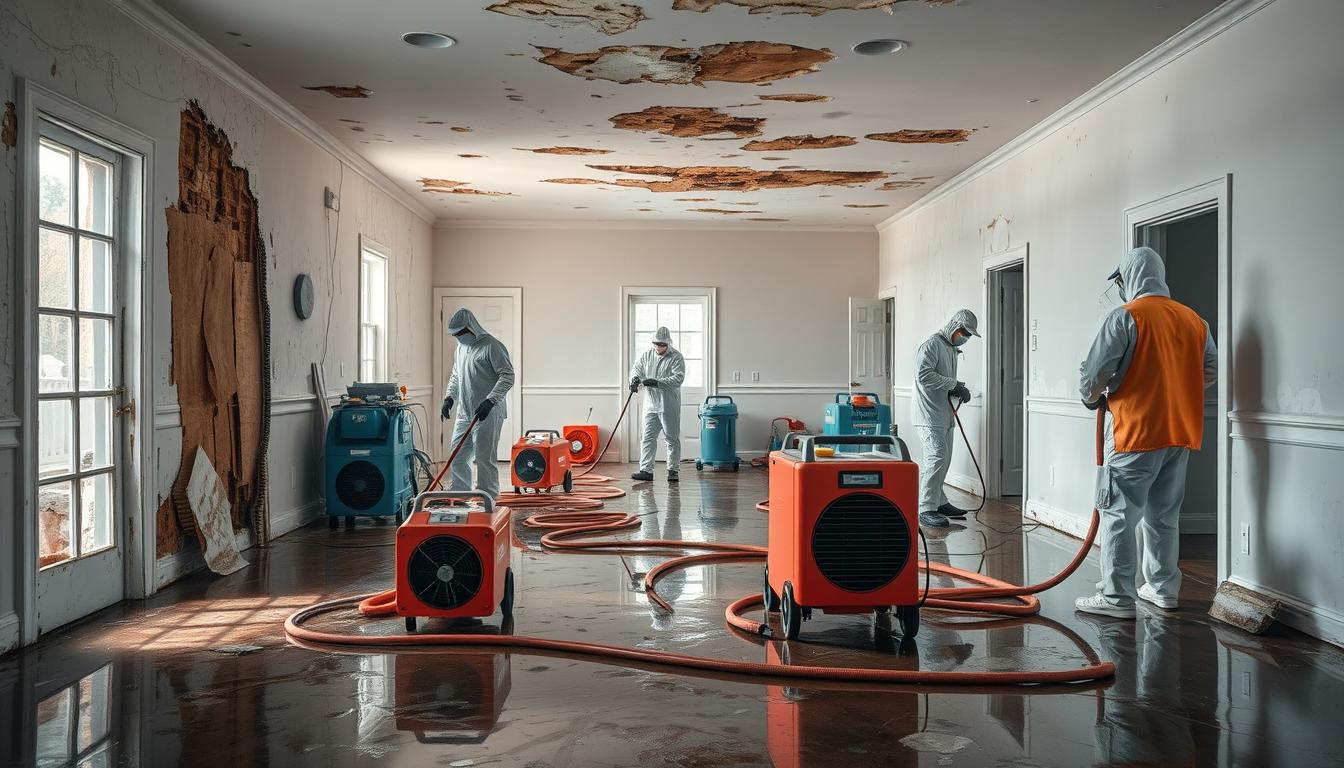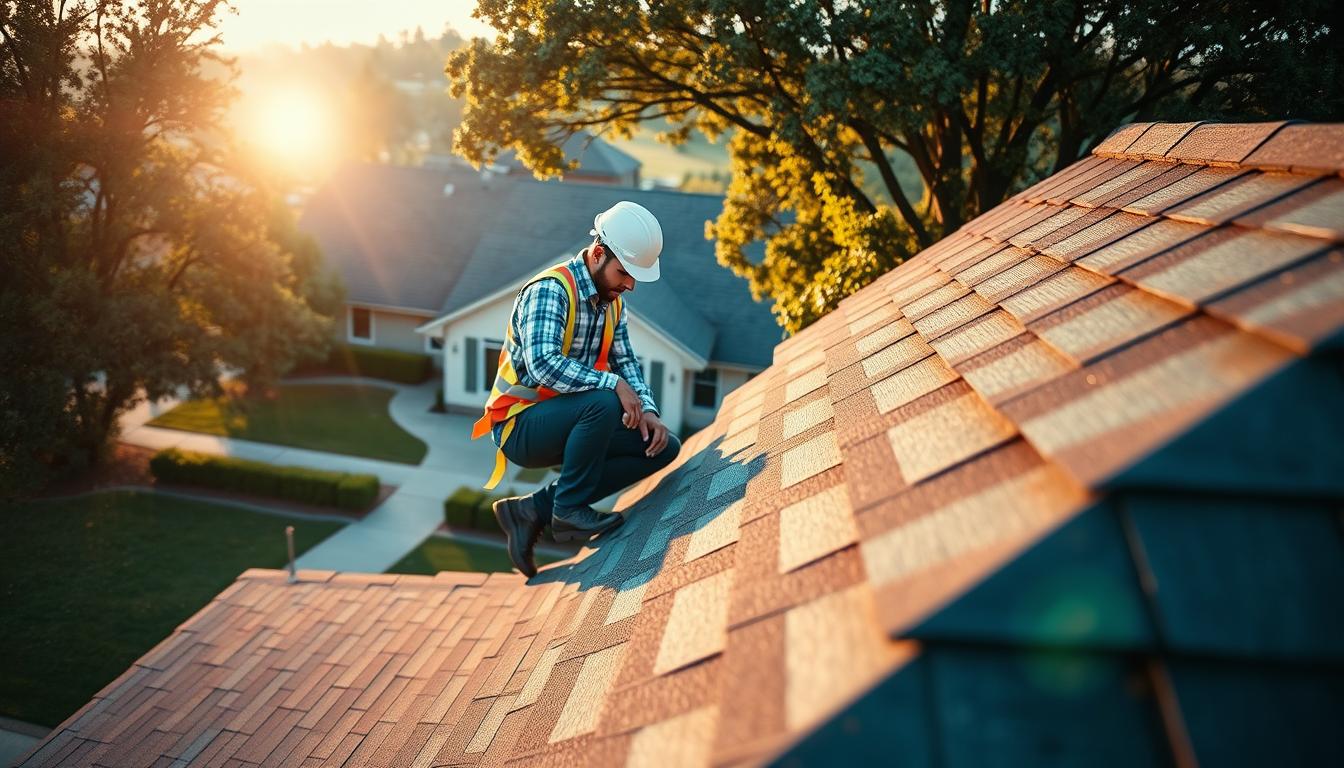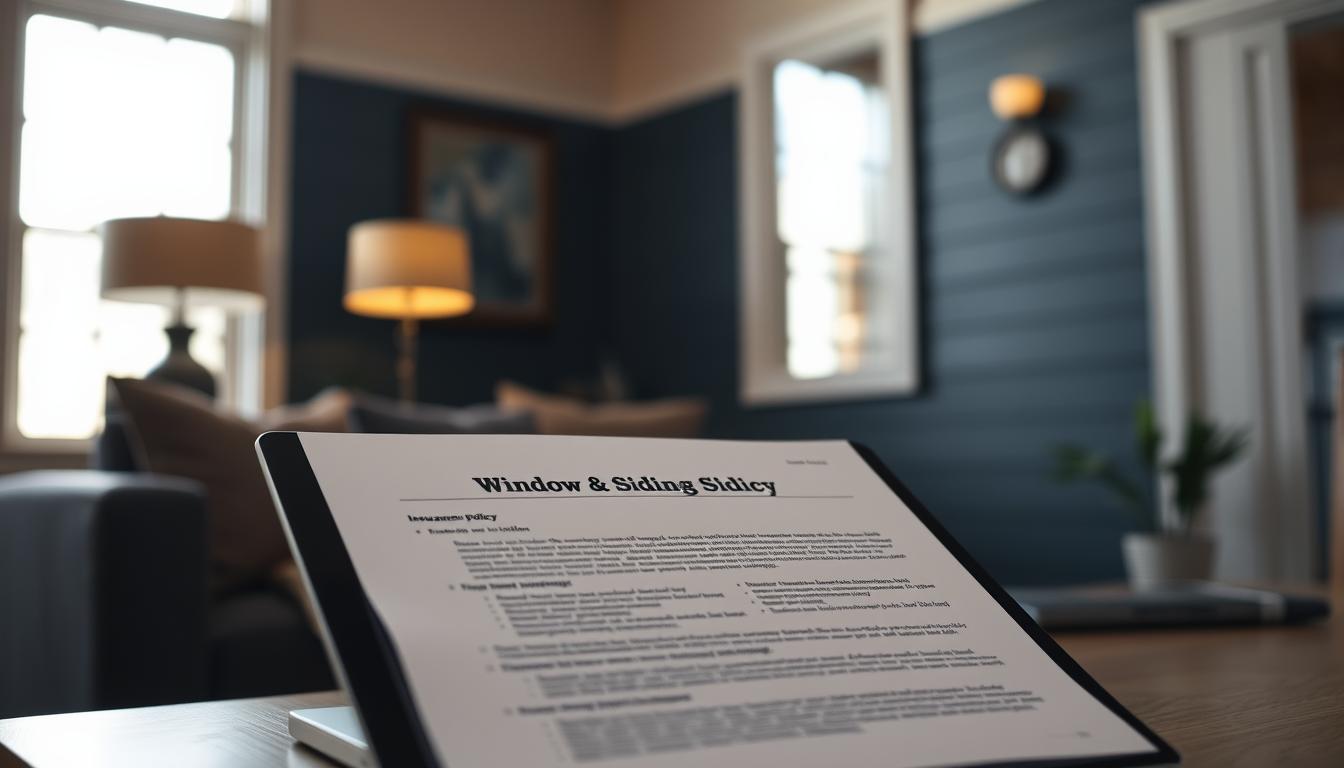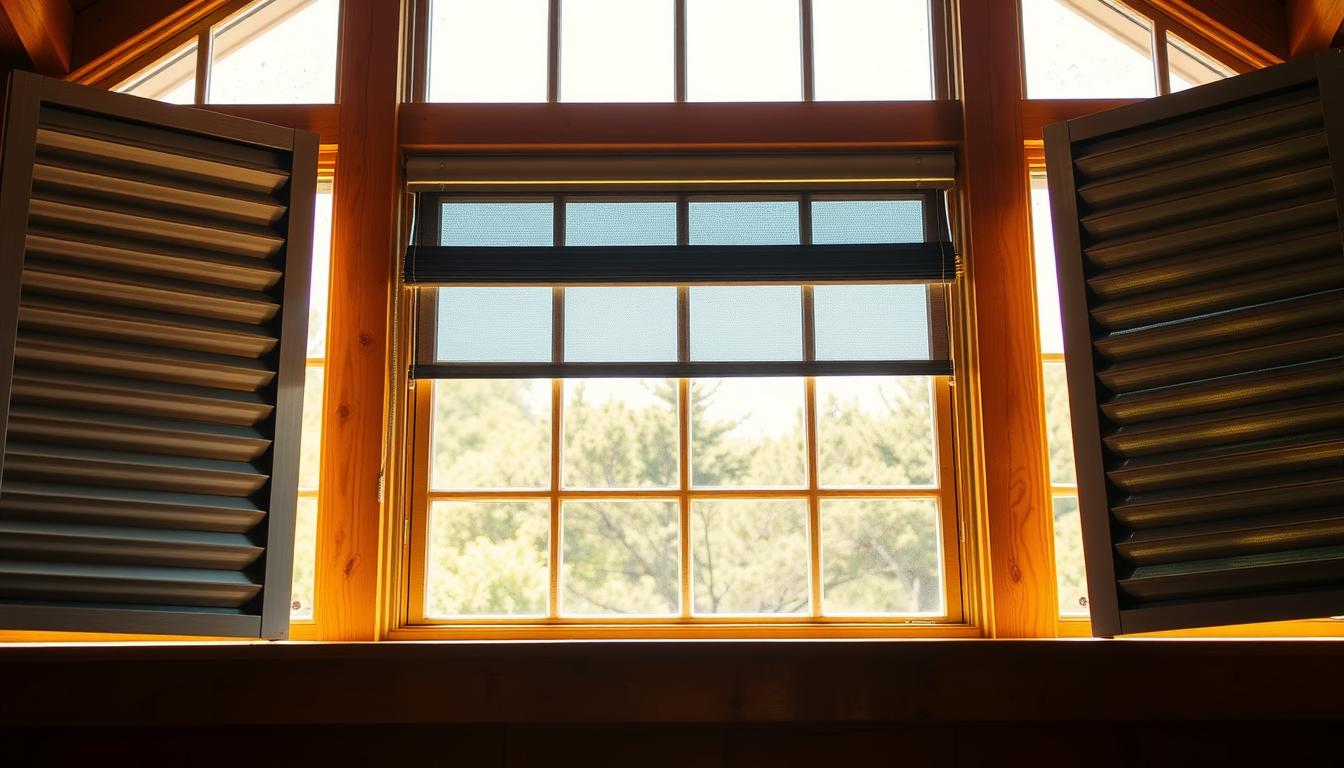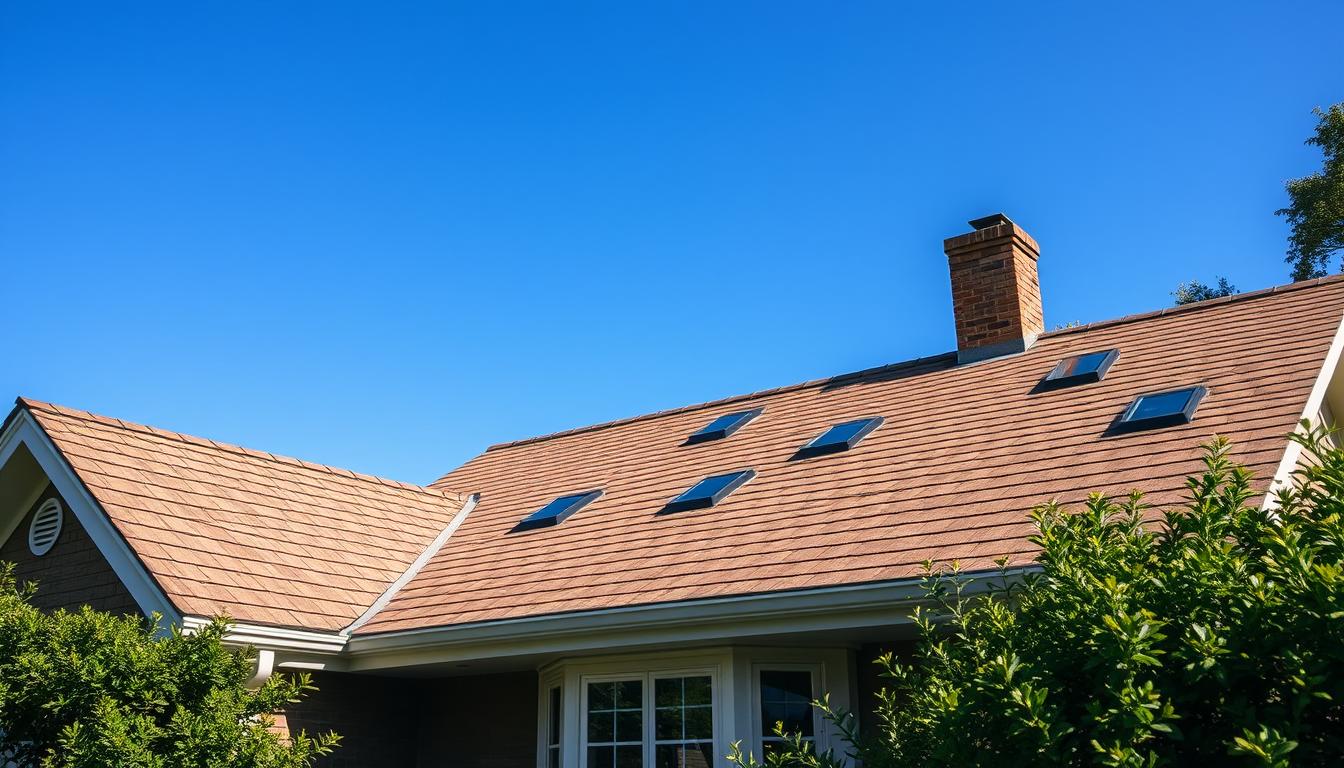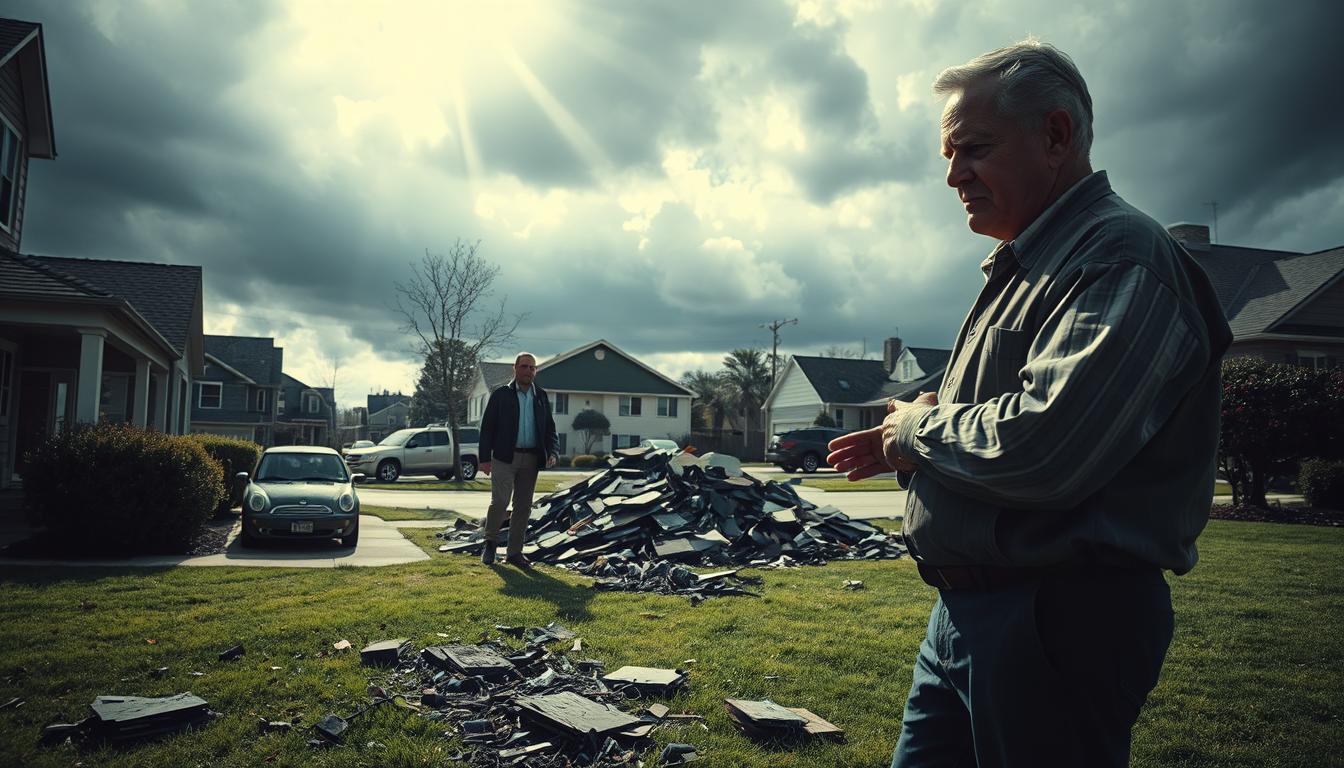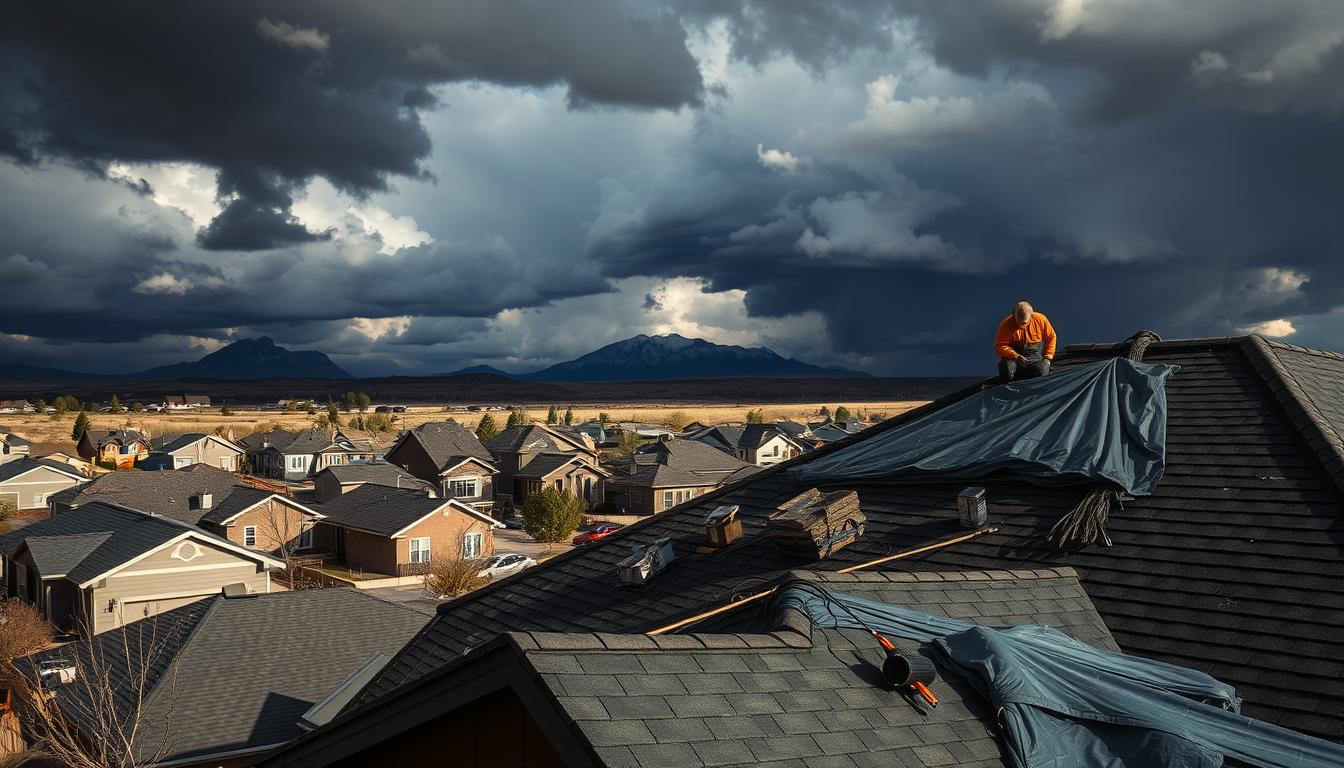Water damage can happen without warning, turning a calm home into a disaster area. In Colorado Springs, The Rich Co Inc is ready to help with expert flood damage restoration. They protect your property and bring back your peace of mind.
Water damage needs quick action. Professional help can stop expensive damage and lower the chance of future problems. Experts know time is key in water emergencies.
Fixing water damage can be simple or very complex. Costs can range from $350 for small issues to $100,000 for big damage. Knowing the right steps is key for good flood damage restoration.
Key Takeaways
- Immediate response is critical in water damage situations
- Professional restoration can prevent long-term structural damage
- Water damage restoration costs vary based on damage extent
- Different water categories require specialized cleanup techniques
- The Rich Co Inc offers comprehensive water damage solutions
Understanding Water Damage Categories and Risks
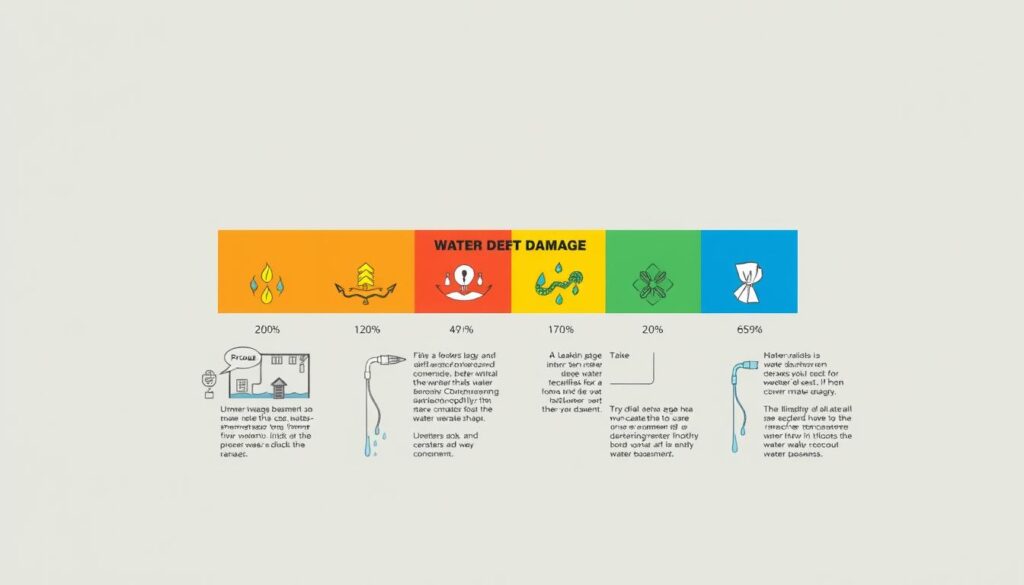
Water damage is not the same for everyone. Flood remediation services know that different types need different solutions. The Institute of Inspection, Cleaning and Restoration Certification (IICRC) has identified three main categories of water damage. These categories help experts understand risks and plan the best emergency flood response.
Knowing these categories is key for keeping homes and properties safe. Each type of water damage has its own challenges and dangers.
Clean Water Damage: The Lowest Risk Category
Category 1 water damage is the least serious. It comes from clean sources like:
- Broken water supply lines
- Faucet leaks
- Refrigerator water line ruptures
- Roof leaks
Statistically, 98% of basements will experience some water damage, making awareness critical.
Gray Water Contamination: Moderate Health Risks
Category 2 water is more contaminated and could make you sick if you drink it. It comes from:
- Washing machine overflows
- Dishwasher leaks
- Toilet overflow without solid waste
Gray water can get worse in 48 hours if not fixed by flood remediation services.
Black Water Hazards: Extreme Contamination
Category 3 water is the most dangerous. It includes:
- Sewage backups
- Flood water from rivers or streams
- Contaminated groundwater
Black water has toxic bacteria, chemicals, and pathogens that are very harmful. Getting professional help for emergency flood response is crucial.
Emergency Response and Initial Assessment
When water damage happens, time is very important. Water can cause a lot of damage in just 24 hours. It can lead to mold and harm the structure of your home. That’s why getting help fast is key.
In an emergency, acting quickly is crucial. Restoration experts work fast to lessen damage and protect your property. They follow a detailed plan that includes:
- Rapid on-site assessment within 60-90 minutes
- Immediate water extraction techniques
- Comprehensive damage documentation
- Safety protocol implementation
The first check is very important for fixing the damage. Experts use tools like moisture meters and thermal cameras to find hidden damage. They also document everything well for flood insurance claims, helping homeowners get the right compensation.
Stopping damage early is important. Experts use special tools to remove water fast. This helps avoid bigger problems later.
Homeowners should choose emergency services that are available 24/7. These experts help right away and support you with insurance claims. They turn a big problem into something more manageable.
Professional Flood Damage Restoration Services
When disaster hits, getting your home fixed fast is key. Water damage can spread quickly. That’s why you need experts to help you recover.
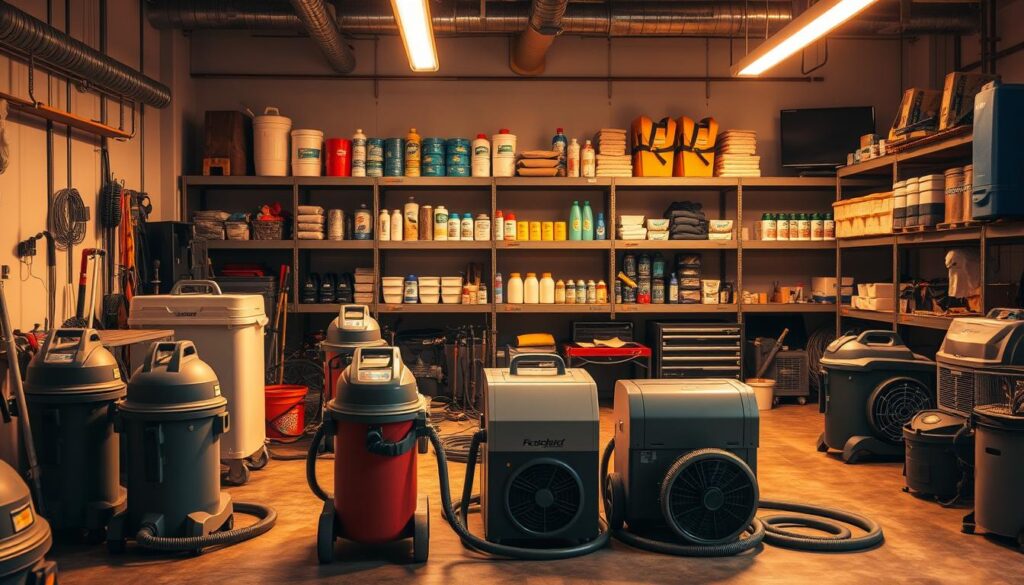
Teams ready for disasters have the right tools and know-how. They know how important it is to act fast and fix everything right.
Water Extraction Techniques
There are many ways to remove water:
- High-powered industrial water pumps
- Submersible water removal equipment
- Specialized vacuum systems
- Moisture detection technology
Professional Equipment Used
Experts use top-notch gear for fixing your property:
- Industrial-grade dehumidifiers for quick moisture removal
- Infrared thermal imaging cameras to find hidden moisture
- Powerful air movers for drying everything out
- Advanced moisture meters for tracking moisture
Timeline for Professional Restoration
The recovery process has a clear plan:
- Emergency response in 60-90 minutes
- Drying: 3-5 days
- Full restoration: 1-2 weeks
Certified techs keep an eye on moisture and temperature. They make sure your property is fixed well and fast.
The Water Mitigation Process
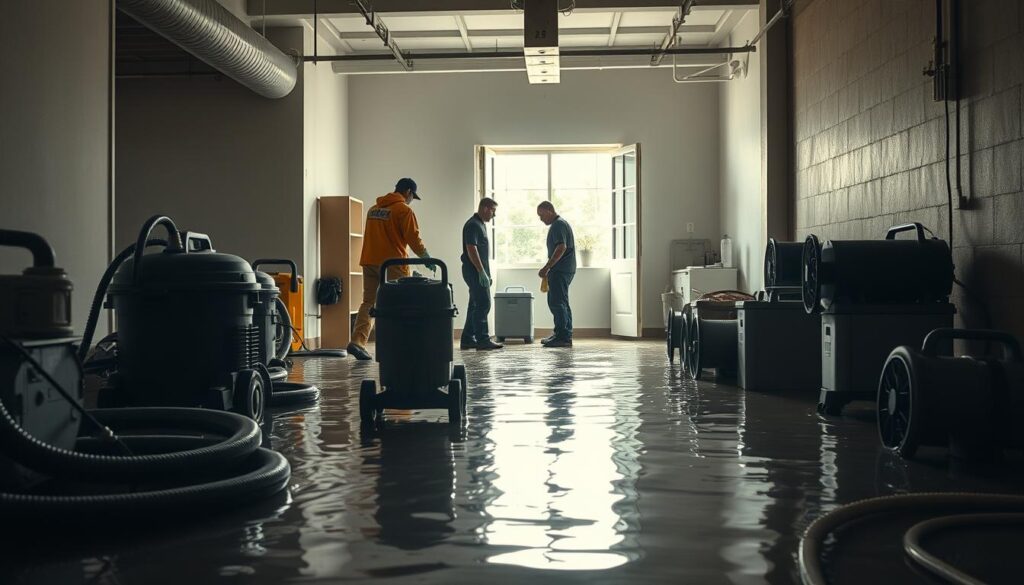
Water damage can quickly turn from a small problem to a big disaster. Getting professional help is key to protect your home. It stops major damage, mold, and sewage issues.
The water mitigation process has three main steps:
- Stopping the water source completely
- Extracting standing water quickly
- Drying affected areas thoroughly
Experts know time is very important. Water can start causing big damage and mold in 24-48 hours. They use special tools to find hidden moisture and avoid future problems.
Important techniques in water mitigation include:
- Industrial-grade water extraction tools
- High-powered dehumidification systems
- Advanced moisture detection meters
- Antimicrobial treatments to prevent mold
For sewage cleanup and severe water damage, you need professional help. Contaminated water is dangerous and must be handled carefully. This ensures your home is safe and clean again.
Quick action is your best defense against extensive water damage and potential health hazards.
Preventing Secondary Damage and Mold Growth
Water damage can quickly turn into a big problem if not fixed fast. It’s key to remove mold within 24 to 48 hours after water hits. This stops mold from damaging your home and harming your health.
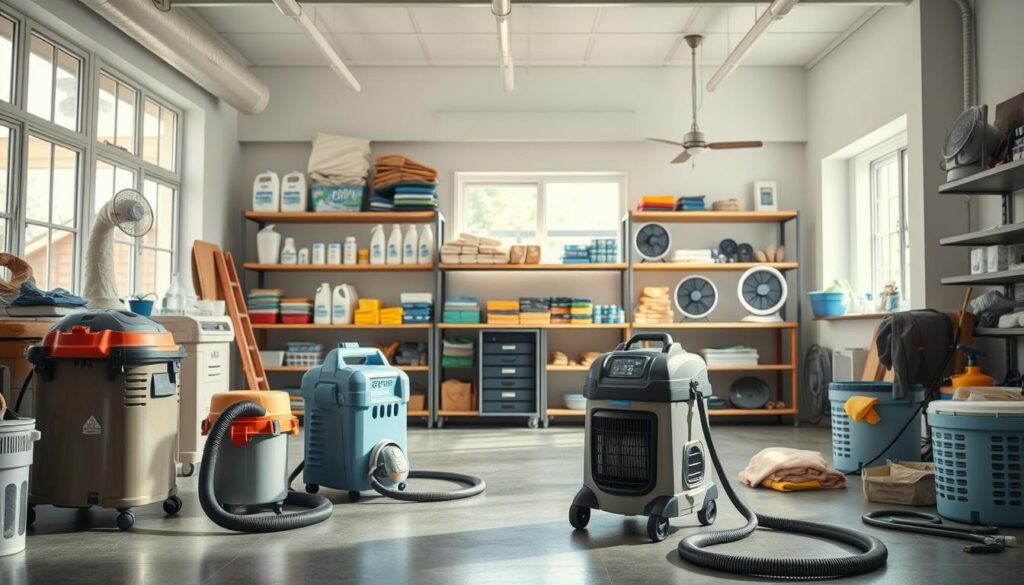
Getting help from experts in water damage cleanup is crucial. It helps avoid long-term problems and keeps you safe from health risks linked to moisture.
Identifying Problem Areas
Places where mold might grow include:
- Basement and crawl spaces
- Underneath carpets and flooring
- Behind walls and drywall
- Around windows and door frames
- Near plumbing fixtures
Mold Prevention Strategies
To stop mold, you need a solid plan. Keeping humidity inside under 50% and good air flow are key.
- Use dehumidifiers in damp spots
- Fix water leaks right away
- Check for moisture with special tools
- Use quick drying methods
Long-term Protection Measures
To keep your home safe from water damage, take action and get help. Regular checks and quick cleanup can cut down damage risks by up to 90%.
- Book professional moisture checks
- Put in water leak detectors
- Keep water away from your home
- Choose good waterproofing products
Structural Repairs and Property Restoration
Water damage can really hurt a property’s structure. This makes it very important to get professional help for fixing it. The repair work is not just about fixing what you can see. It also deals with hidden damage to make sure everything is fixed right.
When fixing the structure, experts do a detailed check and fix what needs to be fixed. They look at important parts like:
- Foundation and load-bearing walls
- Electrical systems
- Plumbing infrastructure
- Flooring and subflooring
- Insulation and drywall
Disaster recovery teams use special tools to find and fix water damage. Specialized moisture detection equipment finds hidden water damage. This makes sure they don’t miss any weak spots.
The cost to fix a property can be between $1,500 and $3,500. It’s important to act fast. Fixing water damage in 24 to 48 hours can save 30% to 50% on costs. Experts aim to not just fix but also make the property stronger against future water damage.
Homeowners should choose certified experts for help. They will give detailed reports, do precise repairs, and help with insurance claims. This makes the restoration process easier to handle.
Working with Insurance and Documentation
Dealing with flood insurance claims can be tough. But knowing your policy well is key to getting through it. Not all policies cover water damage the same way. So, it’s important to check what your policy says.
Some policies cover sudden damage like burst pipes. But they might not cover damage from long-term neglect. It’s crucial to understand what your policy does and doesn’t cover.
Documentation is your best friend when dealing with insurance claims. Make a detailed list of what’s damaged, including what you bought it for, when you bought it, and how much it costs to replace. Companies like The Rich Co suggest taking photos from different angles. This helps show the full extent of the damage.
Talking clearly with your insurance adjuster is also important. Keep a record of all damage, repairs, and talks with your insurance. Getting several repair quotes can help ensure you get fair payment. FEMA’s National Flood Insurance Program (NFIP) offers help to make the recovery process smoother.
The claims process usually takes a few weeks to a couple of months. Stay organized, document everything well, and consider getting help from water damage experts. They know the insurance claim process well. Your careful planning can greatly help in your recovery.

